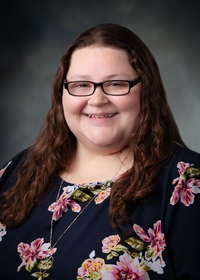The Power of “No”

By: Amanda Beck
Edmond Family Counseling
Relationships with others can come with so many wonderful benefits but for some, there can also be challenges. One area I see time and time again with people is an unfamiliar relationship with boundaries. Boundaries are the limits or rules we set for ourselves within relationships. A person with healthy boundaries would be able to be assertive when necessary and say “no” to others when they want to, but these people are also able to engage in close connection and intimacy. They also tend to value their own opinions and do not compromise values. To understand how to set boundaries for yourself though it’s important to recognize the different types of boundaries. Individuals with rigid boundaries may have few close relationships, avoid intimacy, may be protective of personal information, and might keep others at a distance. For others, boundaries may be more porous. Individuals with porous boundaries tend to overshare, are quick to adopt others’ problems and opinions, avoid conflict by giving in to others, and often have difficulty saying “no”. Most people are a mix of different boundary styles, and it can often depend on setting. A person may be more porous with spouse relationships and more rigid at work. It would also be reasonable to consider setting in terms of what would be appropriate to share. For example, you may not share the same information with your best friend as you would with your boss. Similarly, there can be cultural differences that may play a role in determining what is and is not appropriate to discuss in a public setting.
Now that you can identify different types of boundaries it’s important to recognize which areas of your own life you may have healthy, porous, or rigid boundaries. From there you can develop boundaries that feel the most comfortable for you. There are some great tips for healthy boundary setting including knowing your own limits and values and listening to your emotions. If you are involved in a situation, it’s important to know what is or is not acceptable for you. This is often determined by values. If a person knows they value family it would be easier to set a limit on how late you will stay at work and away from family. Similarly, acknowledging your emotions can help determine healthy and appropriate boundaries by being able to identify feelings like resentment or discomfort. If a person values family and feels resentment toward staying late, they may struggle more with both work and home life. Another tip to consider is practicing assertiveness. Assertiveness is advocating for your own wants, needs, and values while being honest and respectful of others. Don’t be shy when it’s time to set a boundary. Often times people feel as though being assertive by telling someone “no” is rude. This is not always the case and although things like tone, attitude, and body language can affect how a “no” is delivered, it is not an inherently bad answer in all situations. If “no” always feels uncomfortable, something to consider is making a compromise that still holds true to your values. If the answer is no, consider alternatives that might meet a similar goal. This can often help others to swallow a “no” a bit easier. A simple example might look like a group of friends trying to decide on what to eat. If a friend suggests pizza and you had that for lunch it would be appropriate to say “no”, but it’s also appropriate to offer another restaurant in its place. The last tip is to consider the long-term gain that comes from boundaries. Consider how a healthy boundary might benefit a person down the road. Consider a previous example where a person values their family so does not want to work late. This may limit some places as potential job options, but the long-term consequence of not holding that boundary may negatively impact a person’s life and mental health. Ultimately, boundaries can hold a helpful role in your life, along with a simple “no”, and with a little trial and error you may find just the right balance for you.
Amanda Beck M.A. LPC
Edmond Family Counseling Staff Therapist


